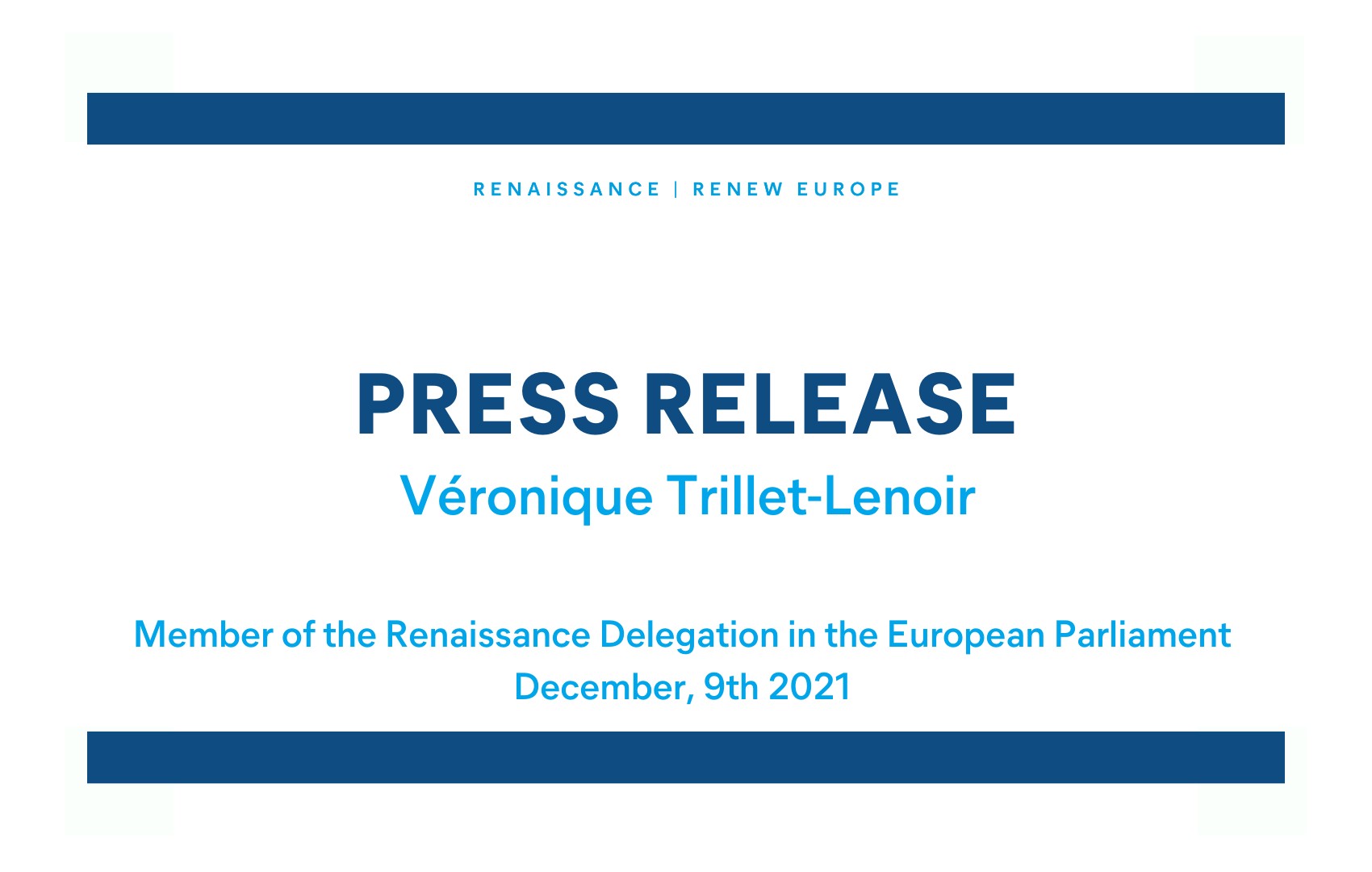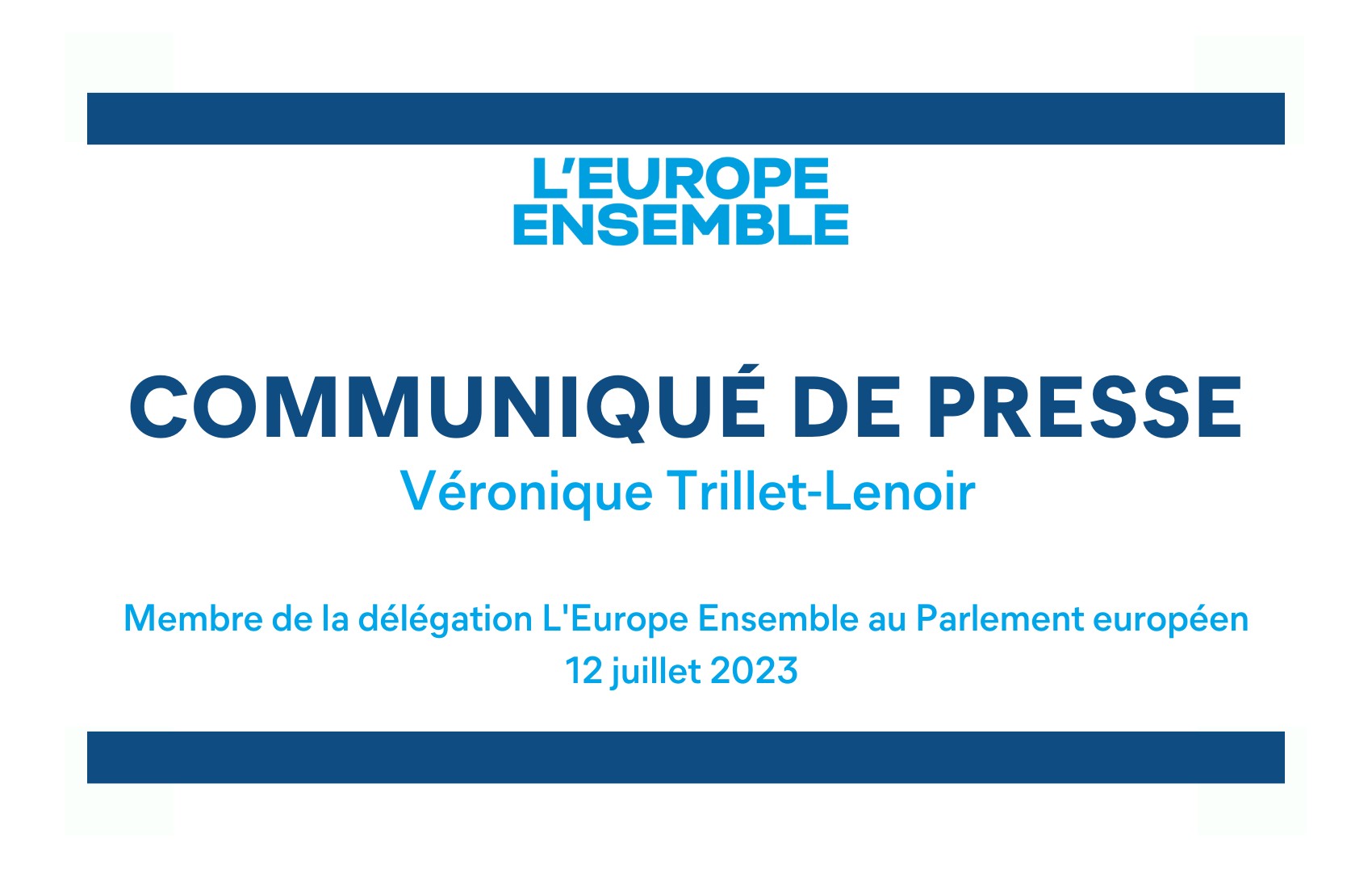This Thursday 9 December 2021, the Special Committee for Beating Cancer (BECA) broadly supported the report by Véronique Trillet-Lenoir, French MEP from the Renaissance delegation and cancer specialist, on the European Plan to fight against cancer. Proposed on the 15th of July in the BECA committee, this report is the result of numerous debates, reflecting the major interest in the fight against all cancers in Europe to protect, treat and rehabilitate all population groups.
As the European Parliament’s rapporteur, Véronique Trillet-Lenoir has been careful to consider the different types of cancer, to give equal attention to all those affected and to address all stages of the cancer continuum. During the negotiations, her ultimate goal was to find balanced compromises acceptable to a majority of groups.
This text is based on the fight against health inequalities and stands on four main areas:
- Preventing the 40% of cancers that are avoidable, through legislative measures or recommendations to Member States in order to act on all determinants, in all policies, to lead to a reduction in behavioral, occupational, societal, social or economic risks. The report includes the strong objective of a "Tobacco Free Generation 2040" and builds on the European Green Deal to implement the objectives of better environmental health.
- Screening and early detection will be optimised by a platform for exchange and collaboration between national structures, by support for innovation and by the common objective of reaching the 90% of citizens concerned by breast, colon and cervical cancer screening.
- Equal access to care will be based on the development of quality criteria expected of cancer facilities and professionals. The text also defends the identification of at least one center of reference per Member State to ensure the best possible care for citizens, in particular for complex and rare cancers (including children's cancers), through the networking of skills and the widest possible participation in joint clinical trials. It lays the foundations for a European medicines market that guarantees access for all to evaluated, available, affordable and innovative treatments, in a sovereign Europe for Health, inventor and producer of new technological advances.
- Support for patients and their carers during and after the disease is based on recommendations to Member States to improve quality of life by promoting, among other things, "health literacy", as well as assistance with reintegration: the report thus supports the deployment of the "right to be forgotten", so that patients are no longer penalised after their recovery.
Véronique Trillet-Lenoir: "To achieve these goals, our main lever of action is based on ambitious, multidisciplinary, independent, coordinated and adequately funded European research, relying heavily on data sharing and Artificial Intelligence. The articulation of prevention, care and research actions will be ensured by a European Knowledge Center constituting a virtual "European Cancer Institute". The commitment of Member States to quality practices could be formalised by the signing of a "European Cancer Patients' Charter", the founding act of a programme of exchanges of good practice and shared training, guaranteeing solidarity and sustainable cooperation.”
Finally, this plan will be financed to the extent of 4 billion euros through the EU4Health programme, but also to research credits from Horizon Europe and the cohesion funds.



